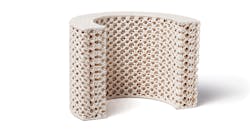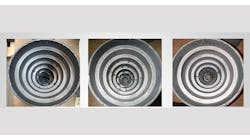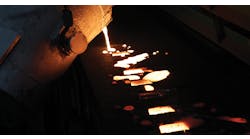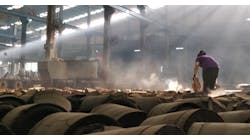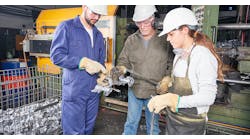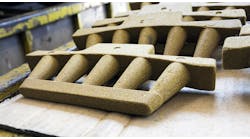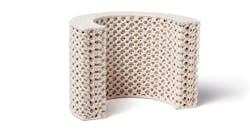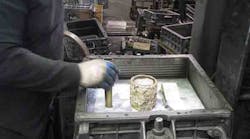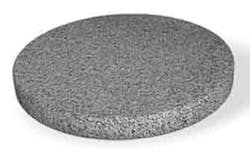Ultimately, hot-toppings should be applied at a thickness of 10% of the diameter of the riser or about half an inch thick, whichever is greater. Logically, this implies that over-application is preferable to under-application, and this is mostly true. Over-application certainly has drawbacks but they are mostly unrelated to the finished product (i.e., casting integrity is unaffected.)
The consequence of under-applying the hot-topping should be self-evident. The positive effects of the hot-topping effectively are voided, as if it were never used. Thus, your manufacturing process will be prone to casting defects.
Over-application, as previously stated, also has its negatives. For example, one consequence is the expense of wasted hot-topping. Additionally, increased dust (i.e., poor workplace environment) also should be expected. Lastly, over-application increases the likelihood of accidental scattering of the hot-topping into the mold. This may indeed affect casting quality and should be avoided.
Hot-toppings, when applied correctly, offer significant casting rewards. Yet, as shown, proper application can be difficult. It’s important to expand on this point.
Hot-toppings must be applied at precisely the right moment to work properly. Otherwise, even the slightest delay can cause the riser to begin to "skin over" prematurely and thus to reduce riser efficiency.
Let’s now consider the potentially dangerous location in which the operator must position himself in order to apply the hot-topping. Typically, he must stand directly beside a freshly poured casting. In some cases, with larger molds, one must be on the mold itself to apply the hot-topping. Effective hot-topping application certainly seems difficult in such cases.
Now, to the question of what alternatives may be considered, more efficient and consistent options do exist. ASK Chemicals produces EXACTCAST™ floating cover lids that offer major benefits to traditional hot-toppings. Made via a patented cold-box process, their diameters are sized to fit inside open risers with consistent thickness. Therefore, you’ll have maximum coverage and optimal thickness for every riser, no matter its size. These features will help you see a flatter feed from the riser, thus maximizing its efficiency. Also, because EXACTCAST™ floating cover lids are pre-formed, foundries are able to position them inside the open riser via nails, or by simply setting them inside a neck-down riser. As the riser fills with metal the cover lid will float to the top, all the while insulating the open riser.
The EXACTCAST™ floating cover lids are an extremely reliable solution and are recommended for any foundry currently using traditional hot-toppings. ASK Chemicals offers these in insulating and exothermic formulations to meet your particular requirements.
Join the Conversation. Email Your Questions for ASK Chemicals
Share your insights, opinions, and elaborate on the questions and the experts' answer(s). You must be logged in to the website in order to post your comments.
